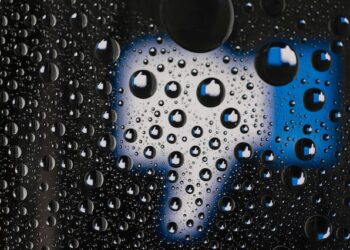The pandemic is teaching us many things, a primary one of which is the reinforcement of the impact that the media has on us. We have been inundated by (mis)information which leaves people confused and leads to mistrust and disobedience.
Not that misinformation is new. It has always been a tactic used by those who want to promote their agenda. A good example of this is revealed in the documentary, Influence, that has just been launched. It tells the sordid story of Bell Pottinger’s work for Jacob Zuma and his state capture cronies – a deep dive into the devious devices that drive false narratives.
Tim Bell, one of the founders of Bell Pottinger, made his name as Margaret Thatcher’s personal adman. Way back in 1988 he is quoted in a book by Eric Clark, The Want Makers, commenting on a commercial run by Lyndon Johnson on his campaign against Barry Goldwater. In the commercial, a little girl in a field of daisies is picking petals from a flower one by one while on the soundtrack a Russian voice counts down.
On zero, the screen erupts in a nuclear explosion and a voiceover concludes that Goldwater’s incompetence would cause a nuclear war. Tim Bell responded to this by saying that it’s good because “the most effective political advertising is that which says the other side is no good – all that said was that Goldwater is going to kill your child”.
Fortunately, Bell’s opinion was not shared by others and the commercial only flighted once. In Ogilvy on Advertising, David Ogilvy described it as “cynical dishonesty that would never be tolerated in a commercial for toothpaste”. He went on to make the point that, not only was it not true, but Johnson knew it not to be true.
What’s needed now is authenticity.
In an article entitled How Should Brands Behave These Days? that appeared in Daily Maverick, Jonathan Bain of Bain & Bunkell writes: “Authentic is an overused word, but I’m going to use it, because we need more of it. Brand truths, please, not confected pabulum.” (I looked it up, it means bland or insipid intellectual matter e.g. using fancy words).
Bain goes on to say: “So, then, how do we, as an industry, proceed? I think by (re)introducing as much authenticity as we can, and urging our clients to do the same…It turns out that the virtue of brands is pretty simple: to repeatedly and reliably exchange something of value, comfort and utility in exchange for currency.”
Bain is absolutely right: brand loyalty doesn’t come from an advertised promise, but from the brand living up to that promise. If the promise is not authentic, if the value is not experienced, trust will be undermined and, because of connectivity, exponentially so. In The Brand Flip, Marty Neumeier makes the point that the power of connectivity empowers the customer not only to draw meaning from a brand, but to give meaning to a brand.
The implication is that the customer can both build or break a brand a lot faster than used to be the case and that means you have to be authentic, because if you are caught out, your brand will be punished.
How does a brand be authentic?
A brand will be authentic if it is lived by those who keep the brand’s promise. As Sir Richard Branson puts it: “Nothing seems more obvious to me that a product or service only becomes a brand when it is imbued with profound values that translate into fact and feeling that employees can project and customers can embrace.”
Values are the foundation on which a company’s culture is built, and as David A. Aaker argues in Aaker on Branding: “What a competitor cannot copy is an organisation – its people, its culture, heritage, programmes, assets and liabilities – because that is unique.”
And coaching the values on which a purposeful culture is built is the responsibility of the executive leadership of a company, so it stands to reason that the company’s brand must be defined, built and protected by that executive.
Leadership must therefore be authentic in the expectations they create, ensuring the company’s competence can deliver on those expectations.
Like much else, including the intelligent management of brand equity during the pandemic, it comes down to good leadership that is translated into good brand communications that translate authentic action.

Johnny Johnson is brand and communications strategist at TowerStone. He started his journey as a Matie, earning a bachelor’s degree in commerce and a master’s in business administration specialising in marketing. After 20 years in leadership positions at advertising agencies: Ogilvy, Y&R, TBWA and Saatchi & Saatchi, Johnson ran his own specialist brand and communications strategy business for 10 years. His role at TowerStone is to define clients’ brand promise and to find ways of helping leaders engage with employees in such a way that they are committed brand ambassadors.













